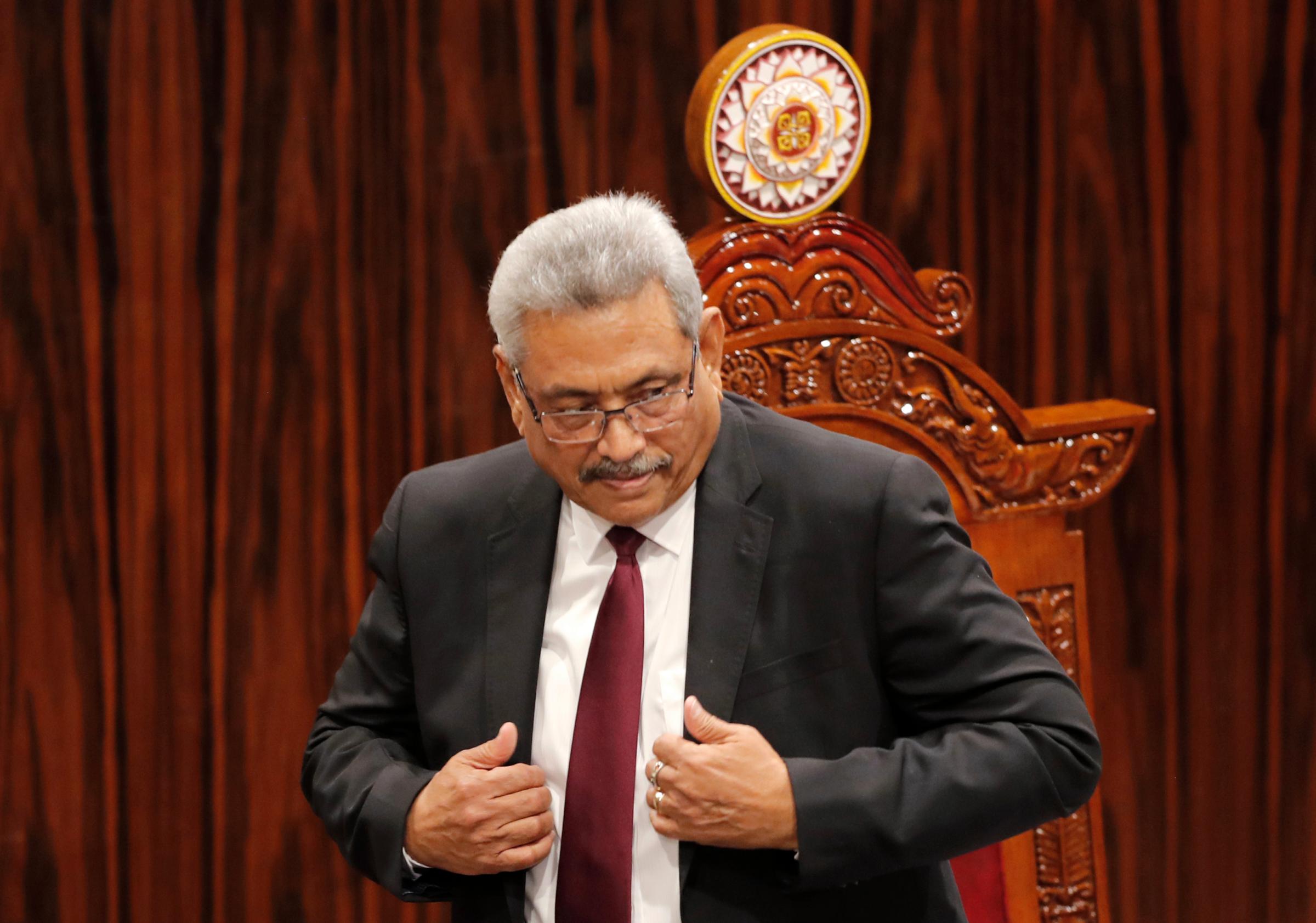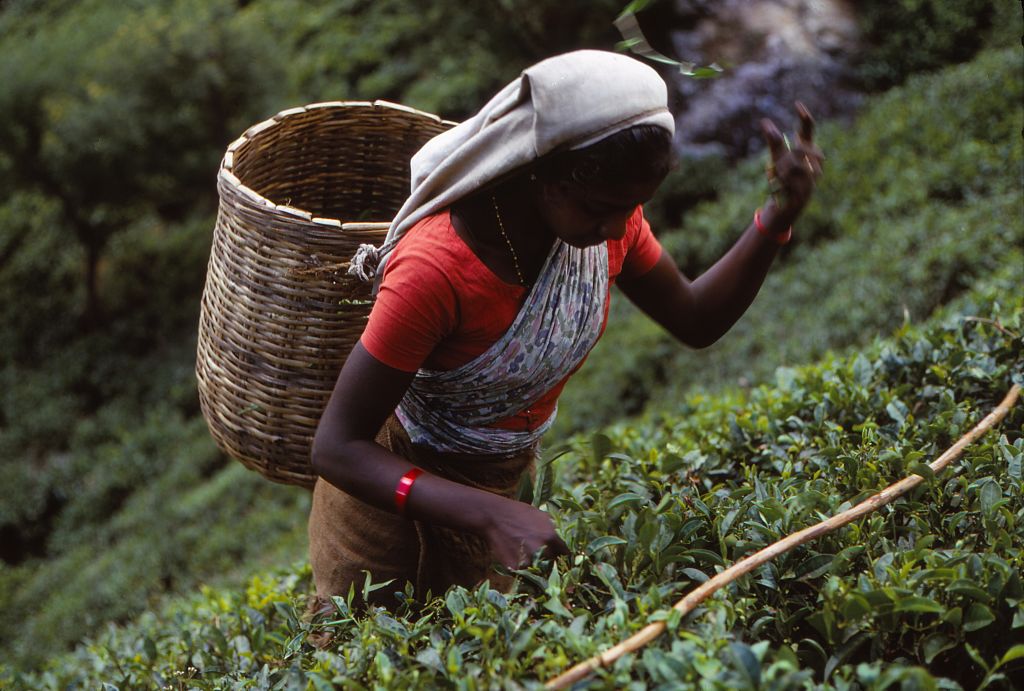
With its president fleeing amid widespread protests, Sri Lanka has been plunged deeper into an ever spiraling political crisis. It’s easy to forget in this meltdown, but the economic turmoil that has brought the South Asian nation to this point was precipitated by its disastrous shift to organic farming—posing new questions about the viability of sustainable agriculture. The Indian Ocean island of 22 million would have been the first to transition to organic farming nationwide. Instead, it sank into its worst social unrest.
The country in disarray, political parties are desperately trying to cobble together an all-party government. Hours before he was supposed to officially step down, President Gotabaya Rajapaksa fled to Maldives on Wednesday after protesters stormed and occupied his palace.
Nearly two years ago, the same Rajapaksa, having consolidated the grip of his powerful political dynasty—by installing his brother (and former president) Mahinda as prime minister—told a United Nations summit that Sri Lanka had been experiencing “increasing use of chemical fertilizers, pesticides, and weedicides that led to adverse health and environmental impacts”. The use of these instruments of industrial farming were incongruent with the “sustainable food systems” of Sri Lankan heritage, he declared.
Read more: What the Crisis in Sri Lanka Means for the World
Industrial agriculture is widely understood to be unsustainable and a source of environmental degradation. Modern agriculture contributes between a fifth to almost a third of greenhouse gas emissions. It also uses up to 70% of all freshwater. The widespread use of agrochemicals pollutes arable soil; United Nations Food and Agriculture Organization (FAO) data show global pesticide use per unit of crop soil increased 75% between 1990 and 2016. This has made the case for organic farming increasingly popular, with advocates arguing that traditional farming methods are just as effective and far more sustainable and safe.
Torn between current livelihood issues and long-term hazards, politicians tend to tiptoe around the problems of modern farming. Rajapaksa has been an exception. In his 2019 election campaign, he promised to move Sri Lanka to organic farming in a decade. He made good on that promise last spring, issuing a blanket order to ban all imports of agrochemicals.

More than two million farmers, or around 27% of the national labor force, were left scrambling for natural fertilizers. The government failed to increase domestic production of organic pesticides and fertilizers, or provide farmers with subsidies to buy these. The sudden policy shift wrecked crop yields. Rice, Sri Lanka’s dietary staple that it used to produce adequately and even exported, saw average yields slashed by some 30%. For the first time in decades, Sri Lanka had to import rice. The production of tea, the country’s prime export, fell by 18%, crimping its foreign exchange earnings. Bending to protests by farmers, the agrochemical import ban was eased in November. But there was still no going back to subsidizing chemical fertilizers like before.
The disruption this caused to Sri Lanka’s agriculture sector could not have come at a worse time. The tourism industry, the country’s foreign exchange earner and the backbone of its economy, had already been reeling from the 2019 Easter bombings–the deadliest terror attack since the 26-year civil war with Tamil rebels ended in 2009. The pandemic only made it worse.
Rajapaksa, who went on a borrowing spree for infrastructure projects, introduced tax cuts to stimulate the economy. But it backfired, instead costing the government some $1.4 billion in foregone revenue. Soon, depleted foreign currency reserves and low revenue collection would rob the Sri Lankan government of the capacity to import even essentials like food, medicine and fuel. The breaking point came when fuel prices skyrocketed with the eruption of the Russia-Ukraine war. Drowning in $51 billion in foreign debt, Sri Lanka was not even in a position to meet its interest obligations. In May this year the country defaulted on debt, for the first time in its history.
The snowballing economic and political crisis deepened by the bungled agricultural transition has severely undermined the cause of organic farming. Critics of organic farming now cite Sri Lanka as an example of how not to—or worse, why not to—go organic.
Dr. Shahidur Rashid, director for South Asia, International Food Policy Research Institute (IFPRI) in New Delhi, India, says: “Politicians will now think, ‘Why take the risk?’” Reducing chemical pollutants in soil, water, and air is undeniably good for the environment, he says. “But the question is, how do we do that? It should be a gradual process.”
The complex math behind organic farming
Despite protests by farmers against the import ban and the ensuing economic crisis, organic farming has always had a fair bit of support in Sri Lanka. A July 2021 survey of Sri Lankan farmers by Colombo-based think-tank Verité Research found that 64% of the respondents were in favor of transitioning out of agrochemical-based farming, with some 78% asking for more than a year to effectively shift.
But while the survey reveals that most farmers were open to the transition and expected an initial hit, it also showed that many did not have a full understanding of organic farming practices such as composting. Some 35% of the respondents said they knew how to cultivate without chemical fertilizers. But of these, only 23% knew of organic alternatives. Nearly two-thirds of all respondents said they did not receive any guidance on how to cultivate crops organically.
Read more: Why It Might Actually Pay To Be an Organic Farmer
A full-scale transitioning into organic farming is by no means easy, even for countries fully committed to it. Bhutan in 2008 pledged to transition completely by 2020. But many of its farmers still use agrochemicals. The European Union, which vowed to pursue organic farming, still endorses genetically modified crops, which threaten natural biodiversity.
The simple reason why it’s so difficult to step back from chemical fertilizers, pesticides, and other agrochemicals is that they enable stable and quick mass production of food. With some 193 million people facing acute food insecurity, according to the World Food Programme, fast and easy access to foodgrains cannot be overemphasized.
The latest U.N. Intergovernmental Panel on Climate Change report, however, warns that industrialized agriculture is the main driver of soil degradation, largely because of pesticides and nitrogenous compounds found in many fertilizers. These chemicals can leach into groundwater. If they enter waterways, they can deplete oxygen levels, affecting fish and other marine life.

But on the other hand, a 2019 study showed that using purely organic methods can cut total food production by 40%. The study finds that going organic can itself be bad for the climate. While direct greenhouse gas emissions are reduced by 20% with organic crops, countries will look to other nations to make up for the supply they cannot produce at home. Factoring in the agricultural land used overseas, net emissions under organic farming can go 1.7 times higher than conventional agriculture.
Organic agriculture would also require “building the soil”, which could take years. Even with organic farming methods, the soil will need to be buffed by nutrients from natural fertilizers like manure and bone meal to help plants grow better, but those substances are also hard to produce in large amounts without causing harm to the environment. Based on U.N. Food and Agriculture data, 10% of the 7.1 metric gigatons of greenhouse gas emissions from livestock supply chains comes from storing and processing manure.
Read more: The Modern World Can’t Exist Without These Four Materials
“In order to give that recommended rate of nitrogen, phosphorus, or potassium to a plant, you need large amounts of organic fertilizers,” Jeevika Weerahewa, an agricultural economist at the University of Peredaniya in Sri Lanka, tells TIME. For instance, urea, a man-made fertilizer, has 46% nitrogen, while the percentage of nitrogen in manure is in the single digits.
Weerahewa says part of the reason Sri Lanka’s economy was badly hit following the agrochemical import ban was because it did not have an adequate national supply of organic options. It thus had to rely on imports, which had its own pitfalls. Costs shot up when the country started importing expensive organic nanofertilizers from India. Meanwhile, its strict sanitary policies forced it to reject a massive consignment of organic fertilizers from a Chinese firm, leading to a diplomatic stand-off. (The firm sued the Sri Lankan government, which had to pay out $6.9 million in settlements in January.)
What to learn from Sri Lanka
Agricultural experts argue that organic farming should not be blamed for the disastrous policy to ban fertilizer. It was, rather, the speed, scale, and sustainability of its implementation.
Devesh Roy, a senior research fellow at the IFPRI, says that while a common argument for organic farming is food safety—it’s healthier because of less exposure to chemicals—it may not be sustainable from the economic perspective because of lower yield. Sri Lanka’s attempt to transition backfired since its thin portfolio of exports—tourism, tea, coconut, and rubber—increased its exposure to risks. “That’s such a short list; if your yield falls 50%, will you not have a foreign exchange crisis?” he says.
Any move toward sustainability should also be coupled with the right technology, adds Rashid. Methods like vertical farming, which helps reduce the amount of land needed to grow food, and precision agriculture—which uses information technology and big data to regulate cultivation—can be useful if a country wants to pursue an all-organic or less resource-intensive agriculture. But some of the technology needed to support this green revolution is “not there yet,” Rashid says.
More Must-Reads from TIME
- Cybersecurity Experts Are Sounding the Alarm on DOGE
- Meet the 2025 Women of the Year
- The Harsh Truth About Disability Inclusion
- Why Do More Young Adults Have Cancer?
- Colman Domingo Leads With Radical Love
- How to Get Better at Doing Things Alone
- Michelle Zauner Stares Down the Darkness
Contact us at letters@time.com